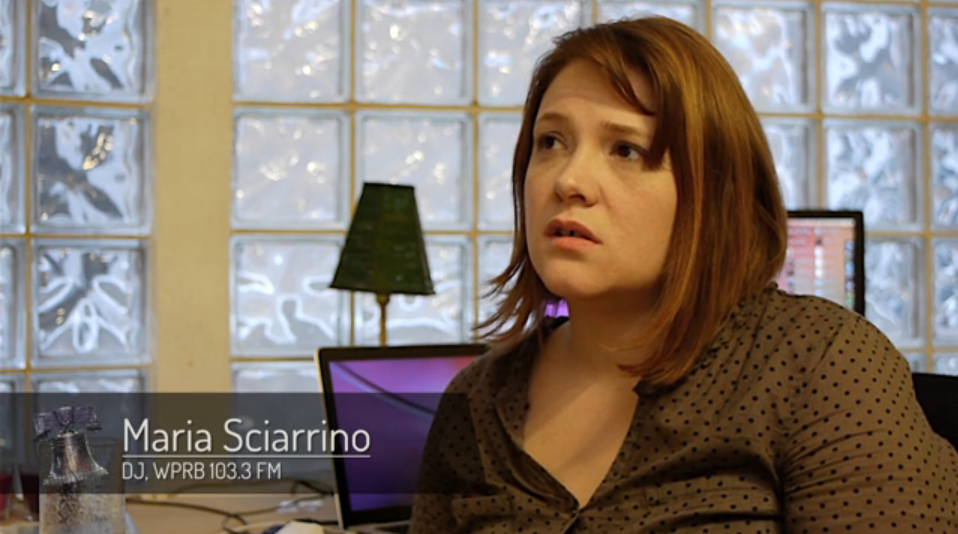Grubhub CTO Maria Belousova sits inside a meeting room called “Philly Special” just minutes after snipping the ribbon on her company’s new Center City offices, home to 100 local employees of the Chicago-based food delivery staple.
She’ll admit this much: Inside the publicly traded company, which has over a half dozen offices around the country, jealousy is spreading like a virus.
“Every time somebody gets renovated, everyone else gets jealous,” said Belousova, who’s been at the food delivery company for five years. “Everyone is currently jealous of Philly, because this space is beautiful. It’s modern and hip, I love it.”
The playbook for setting up a Philly office bearing the Grubhub banner, a Philly special of its own, started in 2017, when Grubhub scooped up a couple dozen staffers from shuttered B2B delivery startup Zoomer. Although there was no strategy at first to create a local office, the talent proved a valuable lure for the organization.
“Our strategy is going where the best talent is,” said Belousova, a former lead software engineer at Microsoft who went on to lead a dev team at online retailer Bluefly prior to joining Grubhub. “It’s very clear that Philadelphia is one of the areas where talent is outstanding.”
She credits the former Zoomer team with “a lot of the innovation” users see on Grubhub’s triple-sided marketplace, which offers food to peckish diners, a delivery platform for restaurants and work for independent delivery drivers.
“As we hired them and saw what they can do, since then we’ve been looking how at can bring more exceptional talent,” the tech chief said. “With this office we’re very well set up to continue to grow the team.”
(This interview has been edited for length and clarity)
###
Technical.ly Philly: You have offices in Chicago, New York, Boston, Philadelphia and Tel Aviv. How do you keep a distributed team running smoothly?
Maria Belousova: Being able to run remotely is a skill. It’s something you have to develop. There’s obviously more overhead in understanding how to work remotely, but once you get over that hump of the additional skills required to be effective it becomes normal. If you wanted to have a manager who’s remote relative to her team, you’d want her to be more experienced.
TP: How is the team structured to perform well?
MB: We don’t believe in satellite offices, or in the idea that there’s a headquarters that makes decisions and offices that implements those decisions. We believe in having teams that are autonomous that are empowered to make decisions and know what success looks like.
TP: What has worked in diversifying your dev team?
MB: Having diverse leaders is the most important thing in bringing in diverse talent. When a candidate comes for an interview and sees there’s women here in leadership positions, she feels a lot more comfortable in joining. Same with everything else. People don’t want to feel like they stand out, they want to feel integrated.
TP: Has that been the experience here in Philly?
MB: We’ve been doing really great already, and if you look at the team here some of our strongest people come from different backgrounds.
TP: What was it about Philly that made the company want to open an office here?
MB: There are just some really impressive people here. For example, [Lead Systems Engineer] Carolyn Mooney, she’s outstanding. She brings this background of systems engineering and she understands how product works. There’s a lot of other people like that who are based in Philly and we thought, let’s get more of that. Initially, we were in a colocating space, and when I was thinking about budget for the coming year and where I wanted to invest, it was a no-brainer.
TP: Any counterarguments to Philly as a possible hub?
MB: I don’t think there was anything concerning. Anytime you start something new, there’s logistical questions to answer but it was, compared to other offices, a significantly easier decision because it’s so close to New York.
TP: Thinking more big picture, what are some of Grubhub’s goals for 2019?
MB: There’s so much opportunity for growth. The biggest focus is making sure we can grow as fast as we can, and for that we need the best kind of talent, the kind that can sustain, accelerate and support everything we want to do.

This editorial article is a part of Technical.ly's Women in Tech month.
Before you go...
Please consider supporting Technical.ly to keep our independent journalism strong. Unlike most business-focused media outlets, we don’t have a paywall. Instead, we count on your personal and organizational support.
Join our growing Slack community
Join 5,000 tech professionals and entrepreneurs in our community Slack today!

The person charged in the UnitedHealthcare CEO shooting had a ton of tech connections

From rejection to innovation: How I built a tool to beat AI hiring algorithms at their own game

Where are the country’s most vibrant tech and startup communities?

